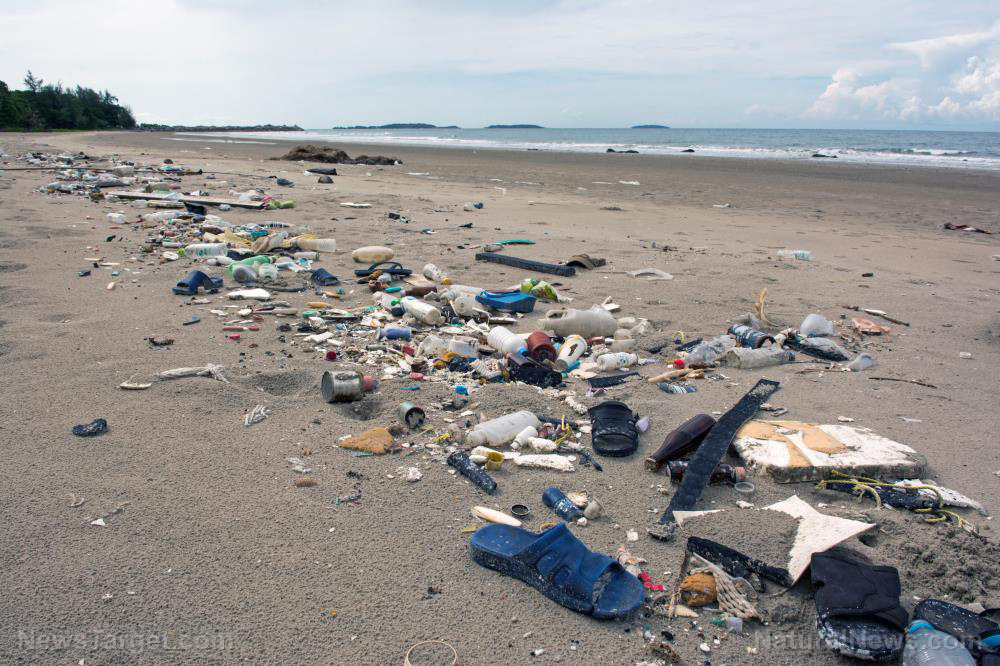
In addition to the sheer volume of plastic waste -- which is problematic in and of itself -- there is the greater issue of what happens once the plastic enters the environment. Plastic doesn't break down the way organic matter does. Some plastics can take up to 1,000 years to decompose -- and during that lengthy decomposition time, plastic products can (and do) release toxic chemicals into the environment. This is bad news not just for the environment, but for all the living things in it -- including humans.
Plastic waste is a major threat
One of the biggest threats to the health of humanity and the entire planet is plastic waste. Even the United Nations, a corrupt organization bent on global takeover, has been forced to recognize the growing problem of plastic. In the U.N.'s Sixth Global Environment Outlook, 25o top-tier scientists from 250 different nations joined forces to write up a 700-page report examining what threats currently face the world's population.
As Daily Mail reports, plastic waste has been named one of the biggest threats facing planet Earth and its inhabitants. While the U.N. report may be focused on human health, if all that plastic waste is bad for us, you can bet its probably harmful to everything else living here, too.
The report cautions, "Marine plastic litter can result in a significant ecological impact from entanglement and ingestion, and can also act as a vector for the transport of invasive species and other pollutants."
There are many reasons why plastic is a threat to humans. For one, plastics contain an array of known toxins, like BPA, pthalates and other harmful chemicals. These chemicals leach out of plastic and are absorbed into soil, food and water -- and eventually, these toxins wind up accumulating in our bodies. Science shows plastic chemicals are capable of all kinds of harm. Even the supposedly safe "alternative" plastics, like BPA-free versions, typically contain chemicals that are still harmful to human health. From causing cancer to disrupting hormones and affecting brain development, the toxins found in everyday plastics are no joke.
Putting plastic waste in the past
The U.N.'s report names plastic waste as a major threat to human health, and there is a call for "urgent action" to address the eight million tons of plastic garbage that enters the oceans each year. So far, however, there has been no international consensus on how to mitigate plastic. The mountains of plastic waste overtaking the Earth and its oceans will soon be as insurmountable as the politics.
While the ruling elite may never come to an agreement on plastic, consumers can still take matters into their own hands. There are many ways you can reduce your plastic consumption while also increasing your sustainability and self-reliance. Replacing plastic water bottles with a reusable one is a great first step towards reducing the amount of plastic you use. You can also harvest your own rainwater to avoid the toxins typically found in tap water.
Switching out single-use plastic bags for reusable bags at the grocery store is another key way you can reduce your plastic consumption. When buying food storage containers, select alternative materials such as ceramic, glass or stainless steel instead of plastic. While reusing and recycling plastic is very important, reducing how much of it ends up in your home is also key to reducing your exposure to plastic toxins.
Learn more about sustainable living at Environ.news.
Sources for this article include:
Please contact us for more information.























